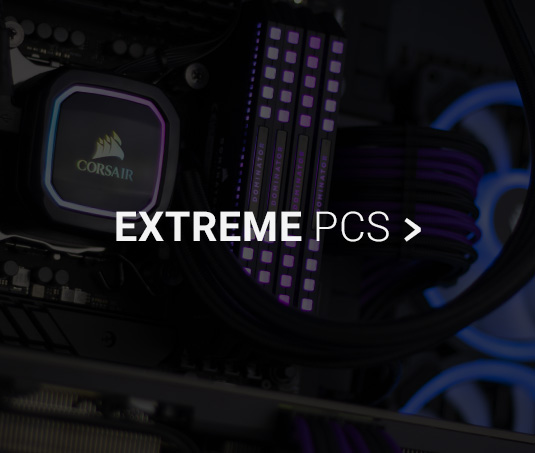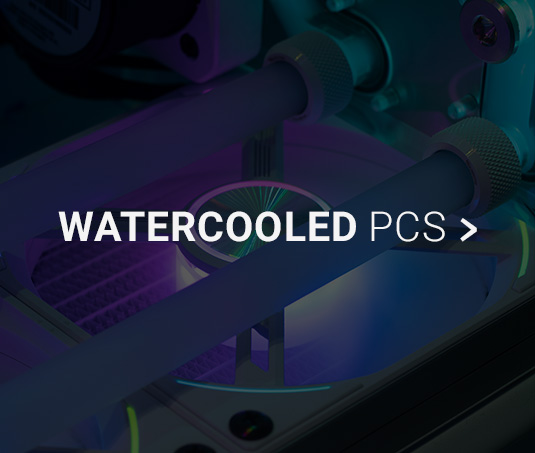
There is no denying buying a new smart home device, book or piece of furniture from a marketplace is a good idea, after all it's likely to be the cheapest place and you probably already have an account and may have experienced the customer service in the past, but what happens when it comes to a more complex and more expensive product such as a gaming PC that isn't immediately obvious what it exactly it is made up of which varies vastly in specification, requires a level of real tech support and potentially a long term warranty?
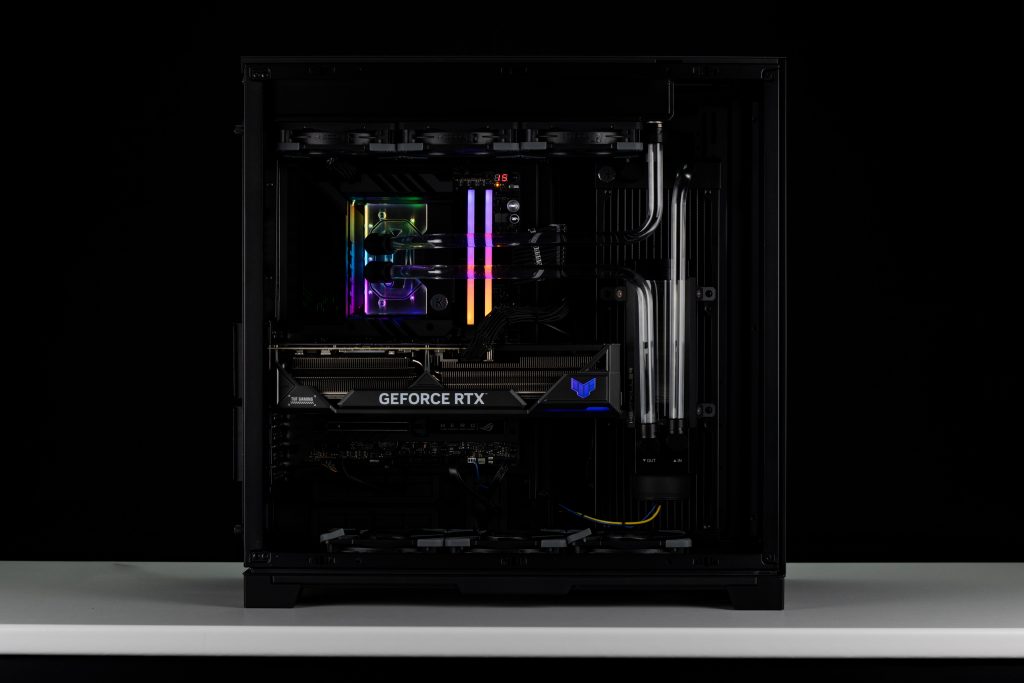

Of course there is no one size that fits all, after all we are dealing with custom PC's here however the purpose of this guide is to highlight some really important caveats that are not immediately obvious. To the untrained eye, market places such as Amazon and eBay are awash of deals and bargains when it comes to settling on your new swish gaming setup and we want to set everything straight to arm you with the knowledge to make an educated purchase. Here at UK Gaming Computers we are often asked about buying a gaming Computer from Amazon or eBay and it will often be asked for us to price match against something from one of these marketplaces. In addition, there are also a multitude of other market places such as Argos, Currys and Game that this guide applies to.
TL:DR
Too Long, Didn't Read - We love them. Much of what we explain goes into detail so publish a "TL:DR" if you want to skip straight to the facts. Of course, feel free read on to in order to understand why;
- You do not know who you are really buying from.
- You do not know how good the actual support will be (if any).
- Custom PC's on marketplaces are price driven - To do so, corners have to be cut.
- Sellers on marketplaces are subject to seller fees - these are usually north of 10% - they need to make this up in order to compete with real retailers such as ourselves in order to be competitive.
- Marketplaces are renowned for "questionable" reviews.
- Its not always possible to leave a review after a certain period of time has elapsed or leave a review after a problem has occurred.
- Anyone can easily set up selling on a marketplace as well as easily vanish without a trace just days after a purchase.
- Amazon and eBay have only got your back for a certain amount of time.
1 - What is a market place?
We briefly touched on this, but in short a market place is an online platform where 3rd party sellers sell their products rather than the actual online platform is selling their own stocked product. You place the order via the market place and in most instances it will appear you are buying from the marketplace platform however it will be a 3rd party fulfilling the order. Sometimes this is really obvious, eBay for example are very upfront as to who you are buying from as you can clearly see the "seller" within a listing however at other market places it is not very obvious and sometimes it may not be until you getting shipping information after placing an order that it is you can work out where the product is actually coming from, or it maybe completely masked and if there is never an issue, be completely none the wiser. eBay and Amazon are the two major players here but it includes most online retailers such as Argos, Currys, John Lewis, Game, B&Q, Next, Boots and most supermarkets. To add some confusion, many marketplaces do still also sell stocked products themselves, again knowing which products they are is also not immediately obvious however it will tend to be products that retailer is known for - if you order yourself a fancy new aftershave from Boots then the chances are its probably stocked and sold by boots but if you order a camera from them, then it's probably being fulfilled by a 3rd party. Have you ever wondered why some products are "online only" or not available next day - well chances are its because a 3rd party fulfilment. We also want to make its clear, there is nothing wrong with a product being fulfilled by a 3rd party, in theory, where ever you order from, you will get your product and the eBay/Amazon success story speaks for itself. There are exceptions but these marketplaces themselves are not making the products they sell on their website, they are selling other peoples brands and products and given how easy it is to set up selling on the likes or eBay and Amazon, those "other people" can be anyone.
2 - Cost
Nearly everything sold on a market place is sold based on cost. eBay and to a certain extent, Amazon, is historically known for having a good chance of picking up what is perceived as a bargain or offering the best price. Rightly so, that new robovac, smart home device or TV sold in the masses often have the best price listed on such marketplaces. We will even go as far as saying that there is a good change that you will find the best price for that "big box brand" gaming setup will also be on a market place and whilst we have covered the whole big box brand type of gaming computer in the past where you would be wise to steer clear, its worth a mention. Whilst other marketplaces and retailers may have contracts in place to sell say a few brands of a certain product, eBay and Amazon place no limit on how many sellers sell the same product and what you end up with is a handful of more sellers selling the same product at a few different costs, as a consumer, you are going to pick the listing with the lowest price. This results in a "race to the bottom" in other words whichever seller sells the item the cheapest sells the most of that item and this is great when it comes to fixed set products that are exactly the same irrelevant of the seller. That new Dyson V23 vacuum cleaner, will always be that Dyson V23 vacuum cleaner as it can't be anything else.
Unfortunately, the race to the bottom does not truly exist with custom PC's - they are all different products as they vary vastly in specification, features and component choices. The exception is the big box stuff as they are the same spec/model etc but given their affinity with propitiatory parts, unbranded components, poor cooling and questionable customer service you are not touching this kind of system as you have seen the light!
This brings us on to our first major point, sellers know, cheaper sells more so they gear their product to appear as cheap as possible. Now, there are no free tickets here when it comes to buying in components to make a custom built computer, you most definitely get what you pay for and we don't want to go into too much detail (as you can read all about it here: https://www.ukgamingcomputers.co.uk/blog/gaming-pcs-you-get-what-you-pay-for) and skip to the below for this glowing real-time example.)
At the same time all PC builders buy their components from the same retailer, distributor or manufacturer, and whilst there are some marginal deals to be had between component supply, we are all essentially on the same level when it comes to buying components. The result is that sellers have to cut corners in order to get the price down. Take note of that Amazon or eBay listing to the make and model of the RAM, case, SSD, power supply, wireless card, hard drive & motherboard and then compare it to a proper system builder such as ourselves - you should see a cheap version of these components being offered or quite often, and worse, the listing not even mentioning a make or model of these parts and the seller will simply front the entire listing around a certain model of processor and graphics card which are two parts that cant easily be cheated out on (unless offering older out of date processors and graphics cards which is also relatively common). From the listing you will think you are buying a i7 13700K with a Nvidia RTX 4080 system, and in reality you are, but all the other parts around it are very likely to be cheaped out on to get that "i7 13700K RTX 4080" based system as cheap as possible. Cheaping out on all these supporting components results in decreased reliability, upgrade ability, performance loss, extra noise and heat and power efficiency. Every seller is competing against every other seller all the time hence the phrase, race to the bottom.
Secondly, every seller on Amazon or eBay are subject to seller fees. They vary from marketplace to marketplace, lets use eBay for example;
The seller has to give eBay 12.8% + 30p for each item sold on their market place. For a £2000 system that works out to be a whopping £256.30 meaning in order to compete with an online retailer, such as ourselves who don't sell via a market place, they need to find a way of making that difference up. In simple economics that is to either bump up the price or as we have just pointed out, cutting costs on order to appear to remain competitive.
3 - Feedback & Reviews
Amazon's review system isn't too bad although is well known to be plagued with fake reviews however eBay's system is dreadful when it comes to the world of gaming computers. First and foremost, the amount of actual product reviews are actually few and far between, less that 1% of the products there have actual reviews, instead they place an emphasis on "feedback" which is great when buying a used lawnmower with no long term support from someone in the same city. Whilst the lack of actual reviews is a problem in itself there are two other problems; You cant leave feedback after 30 days so if something goes wrong after a few months and the seller fails with the support there is no way to leave the appropriate feedback and we all know a company should always be judged on when something goes wrong. Yes they may get the product to you but you have absolutely no idea how good such random seller is at ongoing support on a very technical piece of equipment. Secondly, if something does go wrong in that initial 30 days and you are left dissatisfied, whilst you will probably get your money back via eBay the option to leave feedback gets removed so any problems and appropriate feedback cannot be left so you have no idea at all how good a company is should something go wrong either really early on or much later down the line.
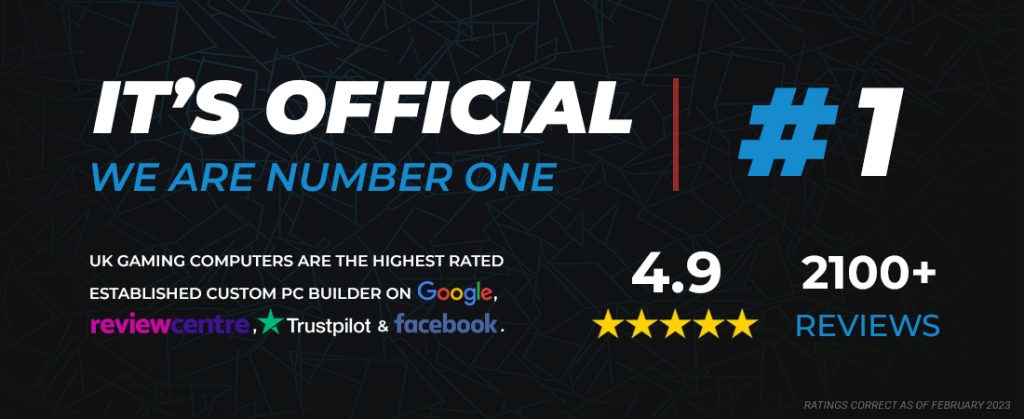
4 - Support
eBay and Amazon themselves do have pretty good customer service - essentially if there is an issue eBay and Amazon make it relatively easy to obtain a refund. The difference here is the definition between customer service and support, Amazon, eBay and pretty much every other market place do not offer specialist computer support, its easier and cheaper for them just to go down the refund route, after all, its not their money, its the sellers money they suspend/deduct. This of course great for something that fails on day one or for that new camera you purchased however not everyone out there is computer savvy and do actually need some kind of level of support especially when its a higher cost and longer lasting product. The other issue is people put time and effort setting up their system - moving files over, installing programs/games, setting up browsers and essentially getting the system how they want - if something were to go wrong, most people wont actually want a refund, they want the system fixed or repaired, rather than having to go through the whole process of buying and setting up another system. It leaves the customer in a bit of a put up with it or send it back dilemma. The problem becomes even more obvious when the issue is something really easy to solve over the phone - 90% of issues presented to us can simply solved by offering the right advice over the phone, which means everyone involved can get on with their day.
In addition, lets say support via the actual seller is offered (something to look for on a product listing as it appears to be very rare) how or who is going to get you back up and running? Take one example, your real seller is actually a 16 kid who is in college full time, that is building computers to get them through further education and can only offer support in an evening or perhaps a weekend. How well equipped is that kid for dealing with problems? Do you even get phone support or is it email only? Are they even in this country? What random house are you going to have to ship it to for repair? How long will it take?
At the other end of the scale, your seller and thus support may actually be with one of the big box brands you see on the TV and available at a local retail park. Chances are there are probably reviews out there on other platforms from customers that use said support service - take a Google of their reviews;


Do you fancy being two hours on hold to someone not even in this country that is not usually the person you need to speak with anyway? We are sure you have been there before, you know the drill and probably wouldn't wish it on anyone.
5 - Comeback & Warranty
Selling on eBay and Amazon is very easy, you sign up, agree to T&C's and start selling, its also just as easy to close up shop. Unfortunately the custom gaming PC game is not an easy task especially when this is an established market, have an overlord market place pulling the strings and them taking quite a large slice of the profit pie whilst at the same time trying to be competitive because everyone is racing to appear to be the cheapest. UK Gaming Computers have traded since 2009 and we will confidently state have lost count of how many custom PC market place sellers have gone out of business since this time - Thousands is the answer - after noticing the trend and it importantly continuing, back in 2015 we attempted to keep track of all the sellers on eBay selling relatively high end computers via what ended up as an incomplete spreadsheet. It was incomplete because we very soon realised there were so many sellers out there there was no way we had the man power to actually complete it let alone properly keep on top of it. Nether less, we managed 418 entries all with links to each seller profile whom all varied between a big box brands and a students side hustles, and that was the end of it. Until now, just over 7 years later!
Out of the 418 accounts which were all alive and kicking selling computers back in 2015, only 21 sellers appear to actually be active and on brief inspection only 12 of them appear to still sell computers. That's just a 2.8% survival rate!
This point is similar to the support problem but with more of a longer term view. If you buy a product that comes with say a 3 year warranty from a market place (we provide a 6 year warranty on all new systems by the way) presuming you have been provided with warranty/support details then there is fairly nasty chance that if you need support or warranty later down the line the seller wont be even trading any more. If you think eBay and Amazon will help at this stage then remember, by default eBay's return window is 30 days and Amazon's is 3 months.
6 - Real World Example
To highlight how rife these problems are on such market places we have found an absolute gem of an example, which was actually brought to our attention by a customer who came in after recently purchasing the below;
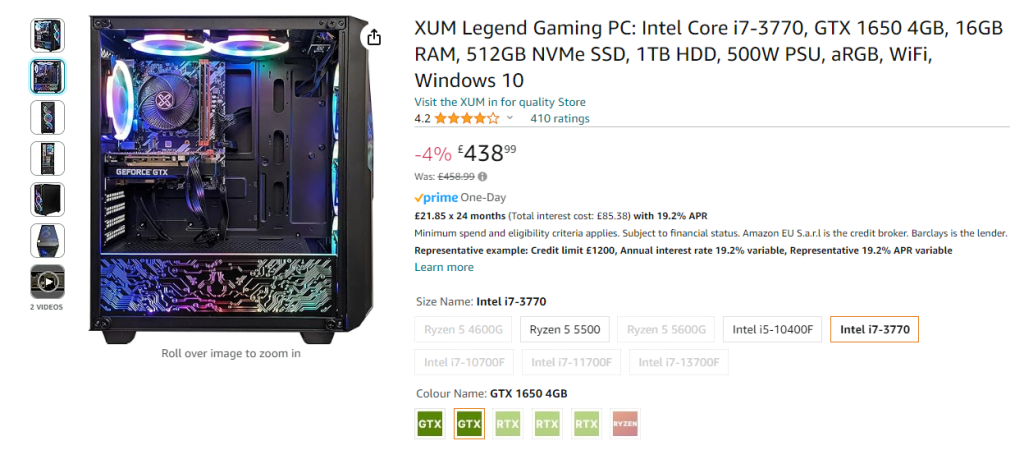
At a quick glance, potential customers will see "XUM Gaming PC Legend / Intel Core i7-3770 CPU | GTX 1650 4GB GPU | 16GB RAM | 512GB NVMe SSD | 1TB HDD" which at a quick untrained glance looks alright, i7, GTX 1650, SSD etc, but if you look remotely closely this is a system with an Intel i7 3770 at its core... they came out in Q2 2012 and were superseded by the 4770 in Q2 2013... it's a 12 year old processor! To give you an idea of how well that stands up today, an i7 3770 scores 6,403 in passmark whilst a current generation i7 14700K scores 53,737. Even a modern i3 14100 (the minimum we would recommend for half decent gaming in todays market) scores 15,391 - urgh! It does get even worse on closer inspection, the RAM, NVME SSD, HDD, case, PSU and Wi-Fi card are all unbranded so you actually have no idea what make and model these are (covered in the previous article as to why this is a super bad thing), but what really makes this one of the most unethical things on the planet is that B75 chipset motherboards (needed for compatibility with an i7 3770) are no longer made nor is DDR3 memory (again needed for the 3770 compatibility) which unless the stock of these has lingered around for the last 12 years (as again B75 chipsets were canned around the same time as the CPU) which is incredibly unlikely especially more so en masse, almost certainly means that the motherboard, RAM and the 12 year old CPU are USED!
After some digging, it seems that XUM is one of the names that "Doctor Memory" trades under, you can find this out yourself by having a quick google of the company information of both brands.

Why would "Doctor Memory" trade under another completely different brand name? Hmm, I wonder! Out of date, below spec, used components being sold under a different name. It's disgusting and brings shame on the industry.
7 - Conclusion
Unfortunately the market is awash of marketplace computers, its the latest e-commerce selling trend and as a result we are not surprised. It results in a vast amount of customers that contact us for support and repairs on systems purchased via a market place. Some of which vary from being only a few weeks old to some which are a few years old. Clearly these customers are unhappy with their previous supplier and because of the lack of support and warranty feel they have no option to turn to us. Where workload and cost effectiveness permits, we are here to help, and whilst we are able to rescue quite a lot of systems the only alternative is essentially start again with a new PC.


